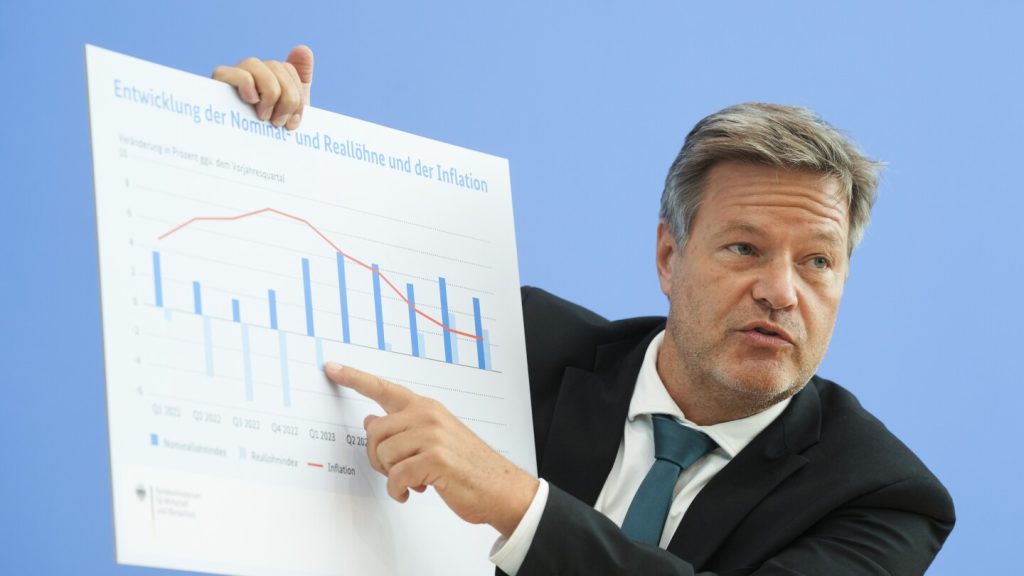Germany’s government announced on Wednesday that the country’s economy, the largest in Europe, is expected to shrink for a second consecutive year. The forecasted contraction of 0.2% for this year marks a significant shift from the previous prediction of 0.3% growth in April. Economists had also anticipated a slight downturn. Vice Chancellor Robert Habeck, who also serves as the economy minister, cited Germany’s structural challenges and global pressures from countries like China and the U.S. as contributing factors to the lack of robust growth since 2018.
Despite efforts to address domestic issues such as energy security, bureaucratic hurdles, and skilled labor shortages, the German Chamber of Commerce and Industry emphasized the need for immediate implementation of reforms to boost investment. Chief Executive Martin Wansleben pointed out that Germany has only experienced two years of recession in the past, back in 2002 and 2003, when welfare reforms were introduced. The current GDP levels are only marginally above the pre-pandemic levels, highlighting the prolonged period of economic weakness the country is facing.
The current three-party coalition government led by Chancellor Olaf Scholz has faced declining popularity over its nearly three years in power due to internal conflicts and disagreements, particularly concerning next year’s budget. The center-right opposition is leading in the polls ahead of the national elections scheduled for September, with the far-right Alternative for Germany party also gaining momentum in recent regional and European Parliament elections. The challenges faced by the current administration have intensified as the economy struggles to recover from the impact of the pandemic and global economic uncertainties.
Looking ahead, the government is forecasting growth rates of 1.1% for next year and 1.6% in 2026. However, the overall outlook remains uncertain as Germany grapples with a protracted period of economic weakness and the need for comprehensive reforms to stimulate investment and growth. The government’s efforts to address structural issues and navigate external challenges from major global powers will be crucial in determining the country’s economic trajectory in the coming years. The upcoming elections will also play a significant role in shaping Germany’s future economic policies and priorities as it seeks to regain momentum and stability in the post-pandemic era.


